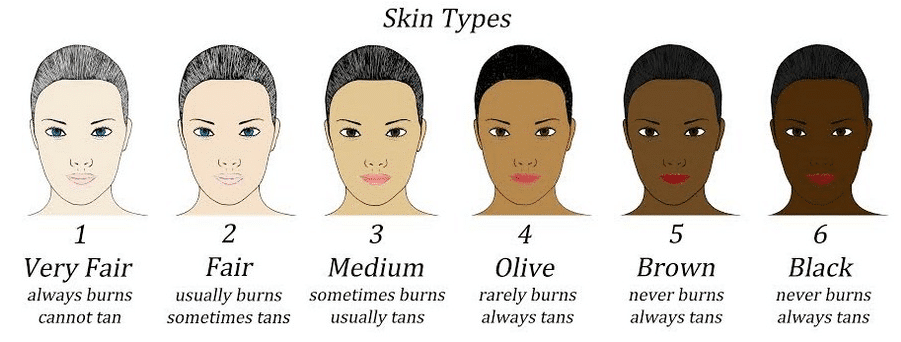Alopecia
This is an autoimmune disease resulting in hair loss. Sufferers may be more sensitive to treatment but there should be no problems treating alopecia sufferers with Plasma Pen.
anaemia
Anaemia is a condition characterized by a deficiency of the hemoglobin content of red corpuscles. These clients will bleed more profusely and will take longer to heal.
anesthetics
Usually a reaction would be due to the base or preparation that the anesthetic is found in, such as the cream or the gel. Your Celebrity Skin technician would patch test different types of anesthetic would determine whether this is the case. If you are allergic to the ‘caine’ used in anesthetics, then the treatment can still proceed without an anesthetic if you elect. A cold compress or a freezing or cooling unit, such as the ‘cool spot’, could be used instead.
asthma
Asthma is characterized by inflammation of the air passages resulting in the temporary narrowing of the airways and making it difficult to breathe. Asthma often requires the use of an inhaler to ease breathing. Regular use of an inhaler will cause thinning of the skin and increased vascularity. If you have asthma, you may bleed more easily and sometimes bruise. Your skin may be more sensitive and take longer to heal.
birth marks and port wine stains
These cannot and must not ever be treated with Plasma Pen.
blepharoplasty
Excess fat and skin are surgically removed from the upper and lower eyelid. If a patient has had blepharoplasty (and our technique is often referred to as non-surgical blepharoplasty), you must wait for 3 months post-blepharoplasty (or longer if there is still pronounced redness in the area) before a Plasma Pen treatment.
botox
It is recommended to wait at least 21 days after BOTOX injections. It is preferable to have your Plasma Pen treatment performed prior to BOTOX being administered or when the BOTOX is just about due for a top up.
breastfeeding
The Plasma Pen treatment cannot be performed on breastfeeding mothers.
brow, forehead, or facelift
Please allow three (3) months after your brow, forehead, or facelift to determine your suitability for Plasma Pen treatment.
bruising or bleeding easily
Bruising or bleeding easily may indicate an underlying health problem, and if you are prone to bruise or bleed easily, you may take longer to heal from your Plasma Pen treatment.
cancer
If you are undergoing radiotherapy or chemotherapy then we must allow leave 5 weeks either side of treatment to be treated with Plasma Pen. If you are undergoing cancer treatment, you should check with your oncologist to find out when your blood count is most suitable to receive treatment. If the cancer is terminal, we may proceed with a doctor’s written consent.
cataracts
Celebrity Skin technicians may perform the Plasma Pen treatment with a doctor’s written consent (if treating the eye area).
contact lenses
Contact lenses must be removed before any treatment close to the eye, and must not be used for up to 72 hours post-procedure. We cannot begin to stress the importance of ensuring contact lenses are removed pre-treatment.
diabetes
Diabetics have a tendency to both bleed and bruise easily, so you may find it more uncomfortable and the healing process may be lengthier. Some clients may need to wait longer between treatments.
dry eye
During a treatment, we may use more eye lubricant and saline solution throughout the treatment to keep you comfortable.
epilepsy
If it has been two years since your last seizure, we may proceed with the Plasma Pen treatment. Plasma Pen treatment may trigger an epileptic event, and Celebrity Skin will request that you complete a consent form as well as have someone bring with you at your appointment.
eye laser surgery (lasik)
If you have recently undergone any laser surgery for the eye, such as LASIK, it is recommended to wait 8-12 weeks post surgery.
hay fever / allergies
If your eyes are red, watering, puffy or the skin is inflamed and red, your Celebrity Skin technician will recommend delaying the Plasma Pen procedure until symptoms have passed.
hemophilia
Hemophilia is contraindicated for Plasma Pen treatment, and not safe for hemophiliac patients.
herpes
Herpes Simplex is a viral infection commonly referred to as a cold sore or fever blister – usually around the mouth. If you have ever had a cold sore, you are more likely to have an outbreak after Plasma Pen treatment in that area. Celebrity Skin suggests that you ask your physician for an antiviral treatment, such as acyclovir at least 5 days before treatment and 5 days after treatment.
HIV / aids / hepatitis
Plasma Pen is not safe for individuals with HIV / AIDS / Hepatitis or other immune disorders.
hyperpigmentation
This is an over-production of melanin which has permanently damaged the surface of the skin. It is more commonly seen in Afro-Caribbean, Mediterranean, Asian and Latin skin types. It presents as darker patches of skin. Unfortunately, Plasma Pen is not appropriate for anyone with hyperpigmentation or having skin types 3-5 on the Fitzpatrick scale.

injections / fillers
It is recommended to wait at least 21 days after the filler has been administered before doing a Plasma Pen treatment. It is also common for lips with large amounts of filler or fat in them to have slower or compromised healing. In some cases, the lips can become infected more easily during the healing process after working close to the lip.
kidney or liver disease
Celebrity Skin requests written consent from a doctor if you have kidney or liver disease.
lupus
Due to the inflammation and swelling associated with lupus, the Plasma Pen treatment cannot be safely performed.
mitral valve prolapse
If a you require antibiotics when you visit your dentist, then you will need to do the same prior to any Plasma Pen treatment.
pregnancy
Like any cosmetic procedure, the Plasma Pen treatment comes with the risk of complications, including infection. These infections can cause risk to fetal health and even cause the loss of the baby. For these reasons, Celebrity Skin technicians will not perform Plasma Pen treatments on women who are pregnant or breastfeeding.
retinal detachment
Retinal Detachment is where the retina peels away from its underlying layer of support tissue. Initial detachment may be localized but without rapid surgical treatment the entire retina may detach, leading to vision loss and blindness. We ask that if you have experienced retinal conditions, that you obtain a written consent form from your ophthalmic surgeon prior to commencing Plasma Pen treatment in the eye area.
skin disorders (psoriasis, eczema, dermatitis)
All skin disorders can make the skin exceedingly dry and treatment more uncomfortable because the skin is usually thinner and more sensitive. It is not recommended to treat any areas with Plasma Pen that are affected by any of these skin disorders.
scars (hypertrophic, keloid)
This type of scar is raised instead of being flat and does not grow, and remain within the perimeter of the original wound and flatten over time. When new, they are often purple/pink becoming more pink/white as they mature. Unfortunately, Plasma Pen is not an appropriate treatment for hypertrophic scars.
shingles
Please wait 6 months after a shingles outbreak before undergoing a Plasma Pen procedure
sties or conjunctivitis
If you suffer from sties or conjunctivitis, please wait at least 6 weeks following treatment prior to undergoing your Plasma Pen procedure. It is possible that the Plasma Pen treatment may cause the condition to recur if having the eye area treated. In some cases we may request written consent from your physician prior to commencing Plasma Pen treatment.
thyroid
If you suffer from underactive thyroid, you may find that your healing time is slightly longer than typical.
trichotillomania
If you are prone to picking, the Plasma Pen treatment may not be appropriate due to the increased risk of infection and hyperpigmentation associated with additional trauma to the skin caused by trichotillomania.
vitiligo
Unfortunately, clients with vitiligo are not good candidates for Plasma Pen due to the risk associated with outbreaks in other areas of the body or face.
Getting Clear: Everything You Need To Know To CURE ACNE Quickly, Easily, and Naturally
GETTING CLEAR IS THE BOOK FOR ACNE SUFFERERS WHO HAVE TRIED CONVENTIONAL ACNE TREATMENTS AND FAILED.
Jennifer Swink, top-ranked medical aesthetician, helps you understand the underlying causes of your acne and how to cure it quickly, and permanently.


